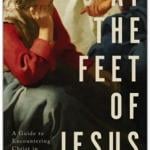In Life Together, Bonhoeffer explains that “Christian community is not an ideal, but a divine reality” (quoted in Paul House, Bonhoeffer’s Seminary Vision, 109). That is not merely a theoretical distinction. In Bonhoeffer’s opinion, “On innumerable occasions a whole Christian community has been shattered because it has lived on the basis of a wishful image” (quoted in House, 109). Christians join a Christian community with a distinct idea of what they should find, but, in House’s words, they “can quickly become very... Read more




















